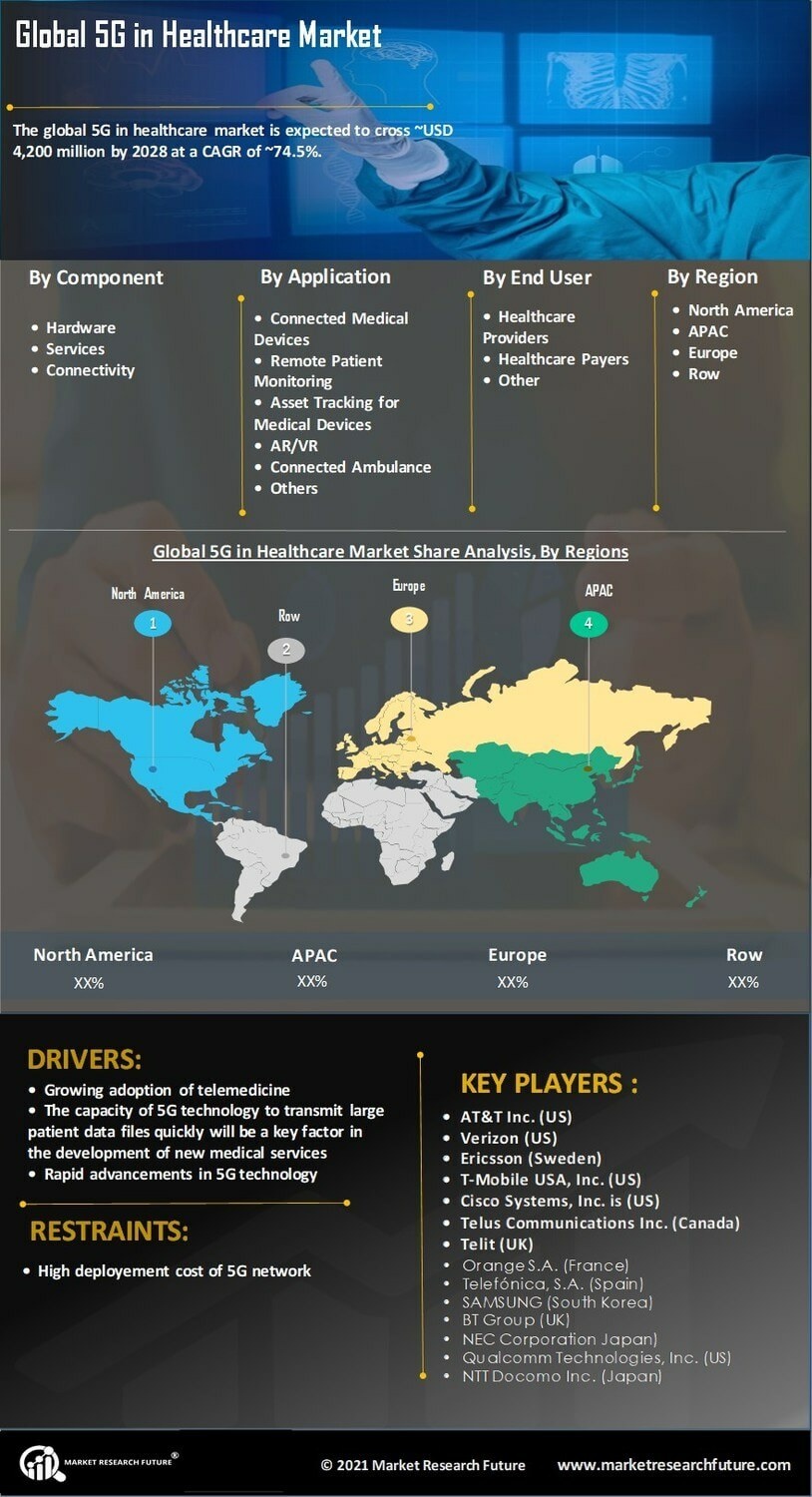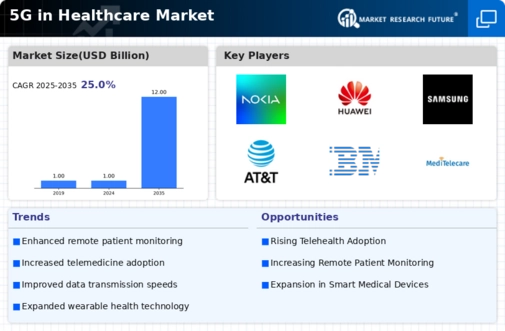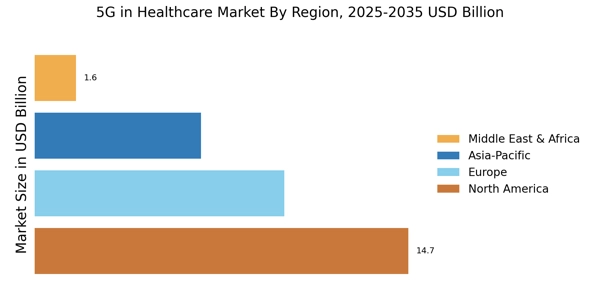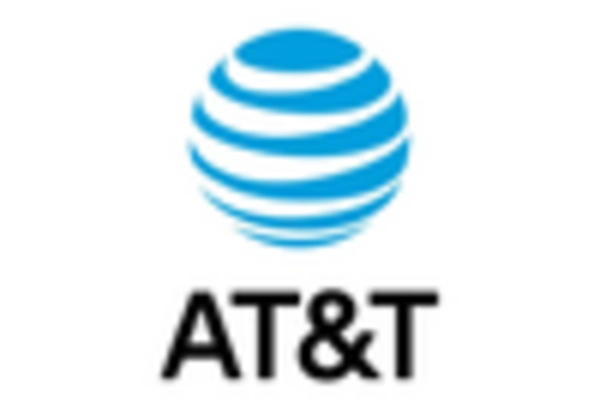Telehealth Expansion
The 5G in Healthcare Market is experiencing a notable expansion in telehealth services. The high-speed connectivity provided by 5G technology enables healthcare providers to offer virtual consultations with minimal latency, enhancing the quality of care delivered remotely. This is particularly beneficial for patients in rural or underserved areas, where access to healthcare services may be limited. Recent data suggests that telehealth usage has increased by over 50% in various regions, highlighting the growing acceptance of remote healthcare solutions. The ability to conduct high-definition video consultations and share medical data instantaneously is transforming the patient-provider relationship. As telehealth continues to gain traction, the 5G in Healthcare Market is likely to see substantial growth, driven by both patient demand and provider capabilities.
Data-Driven Decision Making
The 5G in Healthcare Market is increasingly influenced by the shift towards data-driven decision making. With the enhanced data transmission capabilities of 5G, healthcare organizations can collect and analyze vast amounts of patient data in real-time. This facilitates more informed clinical decisions and personalized treatment plans, ultimately improving patient outcomes. The integration of advanced analytics and machine learning with 5G technology allows for predictive modeling and trend analysis, which can lead to proactive healthcare interventions. Market analysts project that the healthcare analytics market will reach USD 50 billion by 2027, driven by the need for actionable insights. As healthcare providers embrace data-driven strategies, the 5G in Healthcare Market is expected to flourish, fostering innovation and efficiency.
Enhanced Patient Monitoring
The 5G in Healthcare Market is witnessing a surge in demand for enhanced patient monitoring solutions. With the advent of 5G technology, healthcare providers can utilize real-time data transmission to monitor patients remotely, ensuring timely interventions. This capability is particularly crucial for chronic disease management, where continuous monitoring can lead to improved patient outcomes. According to recent estimates, the market for remote patient monitoring devices is projected to reach USD 2.5 billion by 2026, driven by the need for efficient healthcare delivery. The integration of 5G technology allows for high-definition video consultations and seamless data sharing, which enhances the overall patient experience. As healthcare systems increasingly adopt these technologies, the 5G in Healthcare Market is likely to expand significantly, offering new opportunities for innovation and improved healthcare services.
Improved Emergency Response
The 5G in Healthcare Market is poised to revolutionize emergency response systems. The ultra-reliable low-latency communication (URLLC) capabilities of 5G technology enable first responders to access critical patient data in real-time, facilitating quicker decision-making during emergencies. This is particularly vital in situations where every second counts, such as in trauma cases or cardiac arrests. Studies indicate that the implementation of 5G in emergency medical services could reduce response times by up to 30%, potentially saving lives. Furthermore, the ability to transmit high-quality video feeds from the scene to hospitals allows for better preparedness and resource allocation. As healthcare organizations recognize the potential of 5G to enhance emergency response, investments in this area are expected to grow, further driving the 5G in Healthcare Market.
Enhanced Connectivity for Medical Devices
The 5G in Healthcare Market is benefiting from enhanced connectivity for medical devices. The ability of 5G technology to support a vast number of connected devices simultaneously allows for the seamless integration of various medical equipment within healthcare facilities. This connectivity is crucial for the Internet of Medical Things (IoMT), where devices such as wearables, diagnostic tools, and imaging systems communicate in real-time. The market for IoMT is projected to grow significantly, with estimates suggesting it could reach USD 100 billion by 2025. Enhanced connectivity not only improves operational efficiency but also enables better patient monitoring and data collection. As healthcare providers increasingly adopt connected medical devices, the 5G in Healthcare Market is likely to expand, paving the way for innovative healthcare solutions.

















